- Gazi Medical College
Overview, Fees, Life in institution & the place, Syllabus, Benefits
About Gazi Medical College
 Gazi Medical College (GMC) is a distinguished medical institution located in the heart of Khulna city, Bangladesh. Established in 1986, GMC has grown from a small clinic to a leading medical college and hospital, providing a comprehensive healthcare solution for the southern part of the country.
Gazi Medical College (GMC) is a distinguished medical institution located in the heart of Khulna city, Bangladesh. Established in 1986, GMC has grown from a small clinic to a leading medical college and hospital, providing a comprehensive healthcare solution for the southern part of the country.
Academic Overview: GMC offers a five-year MBBS program with a one-year compulsory internship, focusing on practical skills and the latest medical technologies. The program is divided into four parts by the first, second, third, and final professional examinations.
Key Information:
Established: 1986 as Khulna Surgical and Medical Hospital; became a medical college in 2011.
Location: Sonadanga, Khulna, Bangladesh.
Affiliation: Sheikh Hasina Medical University.
Recognition: Bangladesh Medical and Dental Council (BMDC).
History and Background: GMC was founded with the vision of providing world-class healthcare education. It started as Khulna Surgical and Medical Hospital and later became Gazi Medical College Hospital in 2011.
Current Statistics and Numbers:
Academic Staff: 143.
Administrative Staff: 110.
Students: 528.
Hospital Beds: 500-bed hospital.
Departments: GMC has 11 different academic departments, ensuring a well-rounded medical education for its students.
Overview - Gazi Medical College
| Aspect | Details |
|---|---|
| Accepted Examination | NEET Qualification |
| Total Course Fees | Data not available; please refer to the official website |
| University Ranking | Country: Data not available; World: Data not available |
| Course Duration | 5 years + 1-year compulsory internship |
| Medium of Instruction | English |
| Recognition & Accreditation | Bangladesh Medical & Dental Council (BMDC), Dhaka University |
| Location | Khulna, Bangladesh |
Fee Structure of Gazi Medical College
Khulna City from Indian student's perspective
Culture:
Language: Bengali is the primary language spoken in Khulna. English is understood in academic and business circles, making it easier for Indian students to communicate.
Religion: Islam is the predominant religion, with Hinduism also having a significant presence. This religious diversity is reflective of the cultural harmony in the city.
Hospitality: Bangladeshi culture is known for its warmth and hospitality, and Indian students can expect a friendly and welcoming environment from the locals.
Arts and Entertainment: Khulna has a rich cultural heritage with traditional music, dance, and festivals. The city also offers modern entertainment options suitable for students.
Education: Home to several universities, including Khulna University, the city is a hub for higher education, attracting students from various regions.
Food:
Traditional Cuisine: The cuisine includes rice and fish as staples, with a variety of spices and flavors that might be familiar to Indian students.
Influence of Indian Cuisine: Due to cultural similarities, Indian dishes and flavors are prevalent, and Indian restaurants are available for those craving a taste of home.
Street Food: Khulna’s street food scene offers a variety of snacks and sweets, with options similar to Indian street food, making it quite appealing to Indian students.
Lifestyle and Other Relevant Information:
Climate: The climate is tropical, with a hot and humid summer, a pleasant winter, and a monsoon season. Indian students will find the weather conditions quite similar to many parts of India.
Transportation: Public transportation includes rickshaws, auto-rickshaws, and buses. The city is also well-connected by road and river, making travel convenient.
Cost of Living: Khulna is relatively affordable, with lower living costs compared to larger cities, which is beneficial for students managing their finances.
Recreation: The city offers recreational activities like boating on the Rupsha River, visiting historical sites, and exploring the nearby Sundarbans forest.
Safety: Khulna is considered safe for students, with a low crime rate. However, students are advised to follow general safety precautions as they would in any new city.
Overall, Khulna provides a comfortable and familiar environment for Indian students, with its cultural similarities, educational opportunities, and affordable lifestyle. It’s a city where tradition meets modernity, offering a unique experience for those pursuing their studies away from home.
Why Study MBBS at Gazi Medical College?
Gazi Medical College (GMC) is a renowned institution in Bangladesh that offers a multitude of reasons for students to choose it for their MBBS studies:
Comprehensive Education: GMC provides a well-structured MBBS program that combines theoretical knowledge with practical skills, ensuring a holistic medical education.
Affordable Tuition: GMC offers an MBBS degree at a low cost, with no donation fees or hidden costs, making it financially accessible for many students.
Qualified Faculty: The academic faculty at GMC is comprised of highly experienced instructors who are dedicated to the success of their students.
Modern Facilities: The attached hospital is a modern establishment with all the latest conveniences, providing students with the opportunity to practice and learn in a real-world environment.
Global Recognition: The MBBS degree from GMC is recognized by various medical councils, which opens up international career opportunities for graduates.
Cultural Diversity: GMC has a multicultural environment with students from different countries, offering a rich cultural exchange and a global perspective.
Practical Training: Students at GMC are taught practical skills in addition to theoretical ones during their medical school education, preparing them for the demands of the medical profession.
No Entrance Exam: Admission to the MBBS program at GMC does not require an entrance exam, simplifying the process for international students.
Scholarship Opportunities: GMC offers scholarships to deserving candidates, providing financial support to those who excel academically.
Extracurricular Activities: Students are encouraged to participate in extracurricular activities, whether they are regional, national, or international, fostering a well-rounded educational experience.
Choosing Gazi Medical College for your MBBS degree means joining an institution that not only focuses on academic excellence but also prepares you for a successful career in the medical field with a global perspective.
MBBS Course Duration
Gazi Medical College offers a comprehensive MBBS program designed to equip students with the necessary skills and knowledge to excel in the medical field:
MBBS Program: The course duration for the MBBS program at Gazi Medical College is five years. This period is dedicated to intensive academic study, covering a wide range of medical subjects and practical skills.
Internship: Upon completion of the five-year academic program, students are required to undertake a one-year compulsory internship. This internship provides invaluable hands-on experience, working under the supervision of experienced doctors in a hospital setting.
The MBBS degree awarded by Gazi Medical College is recognized by the Bangladesh Medical and Dental Council, ensuring that graduates are well-prepared for their medical careers both in Bangladesh and abroad.
Life in Bangladesh from the students' perspective
Welcoming and Friendly People: Bangladesh is renowned for its hospitality. Indian students will find a warm welcome and an inclusive atmosphere, easing the transition to a new environment.
Vibrant Student Community: With a significant number of students from various backgrounds, Bangladesh offers a lively and diverse academic community. This provides Indian students with opportunities for cultural exchange and building international friendships.
Education System: Bangladesh’s education system is on the rise, with investments aimed at enhancing quality and accessibility. Indian students benefit from affordable tuition fees and a variety of academic programs that meet international standards.
Modern Infrastructure: Urban areas in Bangladesh are rapidly developing, offering modern amenities, reliable internet, and efficient transportation systems, ensuring a comfortable lifestyle for students.
Cultural Diversity: The country’s rich cultural heritage is evident in its festivals, cuisine, and arts. Indian students can enjoy a variety of cultural experiences, finding both familiarity and novelty.
Safe Environment: Generally considered safe, Bangladesh allows students to focus on their studies with peace of mind, though it’s always wise to follow standard safety practices.
Opportunities for Travel: Bangladesh’s unique geographical features provide students with opportunities for travel and exploration within the country, from lush landscapes to historical landmarks.
Quality Healthcare: The healthcare system in Bangladesh is accessible, offering quality services to ensure the well-being of students during their stay.
Rich Natural Beauty: The country’s natural beauty, from the Sundarbans mangrove forest to the serene tea gardens, offers students a chance to connect with nature and participate in various outdoor activities.
Career Opportunities: The growing economy in Bangladesh opens up prospects for internships and employment, allowing students to gain practical experience and build professional networks.
Studying in Bangladesh offers Indian students an enriching experience that combines quality education with a vibrant cultural and social life, all within a supportive and friendly environment.
Eligibility Criteria
Indian students applying for MBBS admissions at International Medical School, Kazakhstan must fulfill the following eligibility criteria:
- Minimum 50% score in Physics, Chemistry, and Biology in Class 12 and passing marks in English.
- Attained the age of 17 as of 31st December in the admission year.
- Cleared NEET exam. (50th percentile for general/EWS category and 40th percentile for SC/ST/OBC category)
Required Documents for MBBS Admission
- Passport
- Candidate's Recent Photographs
- Class 10 & 12 Marksheet
- NEET Scorecard
- Bank Statement
- PAN
- AADHAR
- Guardian's Declaration
- Covid Vaccination Certificate
- HBS Medical Certificate
Benefits of MBBS in Bangladesh
Studying MBBS in Bangladesh comes with a host of advantages that are both academically and economically beneficial for students, particularly those from neighboring countries like India:
- No Donation or Capitation Fees: Medical universities in Bangladesh do not require any donation or capitation fees, making the admission process transparent and financially accessible.
- Easy Admission Process: The admission process for Indian students is simplified through NEET qualification, without the need for any additional entrance exams.
- World-Class Infrastructure: Bangladesh’s medical colleges are equipped with state-of-the-art infrastructure and modern technologies, enhancing the learning experience.
- Cost-Effective Tuition Fees: The tuition fees for MBBS in Bangladesh are reasonable and competitive, especially when compared to private medical institutes in India.
- International Recognition: Degrees from Bangladeshi medical colleges are recognized by major international bodies such as WHO and MCI, enabling graduates to practice globally.
- English-Medium Programs: The MBBS program is taught in English, which is beneficial for international students and eliminates language barriers.
- Cultural Diversity: Bangladesh offers a culturally rich environment, similar to the Indian culture, which helps students from India to adapt easily.
- Affordable Living Costs: The cost of living in Bangladesh is relatively low, which is an economic advantage for students studying abroad.
- Quality Education: The medical education in Bangladesh is known for its high standards and rigorous academic programs.
- Experienced Faculty: Students benefit from the guidance of highly qualified and experienced faculty members.
- Ample Career Opportunities: With a globally recognized degree, students have numerous career opportunities both within Bangladesh and internationally.
These benefits make Bangladesh an attractive destination for students aspiring to pursue an MBBS degree with quality education and affordable expenses.
MBBS Syllabus:
1st year
- Human anatomy
- Molecular biology and Genetics
- Histology and Embryology
- ICT
- Foreign Language (Latin)
- Kazakh (Russian) language
- Modern History of Kazakhstan
- Fundamental Law and Anticorruption Culture
- Physical Education
- Internship (Nursing Assistance)
2nd year
- Morphology and Physiology
- Human Anatomy
- Microbiology
- Biochemistry
- Philosophy
- Sociology and Political Science
- Professionally Oriented Foreign Language
- Physical Education
- Internship (Procedural Nurse Assistance)
3rd year
- General Pathology
- Preventive Social Medicine (PSM)
- Introduction to Clinical Medicine
- Biochemistry
- Psychology and Culturology
- Pathology of Organs and System
- Immunology
- Introduction to Pediatrics
- General Medicine
- Internship (Nursing Practice)
4th year
- Pharmacology
- Community Medicine
- Introduction to Clinical Medicine
- Introduction to Surgery
- Implementation of Big Data Medicine
- Dermatology
- Gynecology
- Obstetrics
- Neurology
- Urology
- Pediatrics
- Psychiatry
- Infectious Disease
5th year
- Necrology
- Cardiovascular System
- Anesthesiology
- Health Information System and E-Health
- Fundamental of General Medical Practice
- Surgery
- State Examination (Specialty term)
6th year
- Internship
FAQ
MBBS abroad is a better options then private medical in India, especially in terms of cost, private medical in India costs a fortune more then that of many countries abroad.
Expertise: Rare Education have years of experience and in-depth knowledge about the admission process, eligibility criteria, fees, and other requirements for pursuing MBBS abroad. We can guide you through the entire process and help you avoid common mistakes and pitfalls.
Time-saving: The admission process for MBBS abroad can be complex and time-consuming. Working with Rare Education can help save a significant amount of time as we can handle all the paperwork and follow-up for you.
Access to information: Rare Education have access to a wide range of information about various medical schools, their fees, and programs. We can help you compare and choose the best options based on your needs and budget.
Professional guidance: Rare Education can provide professional guidance on the best country and medical school to choose based on your academic background, personal interests, and career goals. We can also help you with the visa process, travel arrangements, and settling into your new surroundings.
Support throughout the Process: Rare Education provide ongoing support throughout the entire admission process and beyond. We can answer any questions you have, provide updates on your application status, and help resolve any issues that may arise.
Working with Rare Education for MBBS abroad admission can provide numerous benefits, including expertise, time-saving, access to information, professional guidance, and support throughout the process.
Comparing FMG exam with NEET, we can safely say it is not at all a tough exam. Although there are no specific matrix to judge how tough an exam is, but considering the passing ratio of FMG exam which is roughly 20-25% to that of the percentage of candidates who get selected for government medical college through NEET which is roughly 0.02%, FMG exam is definitely a tough exam in the field of medical studies.

